The First Black Politicians
Is it true, they were Republicans?
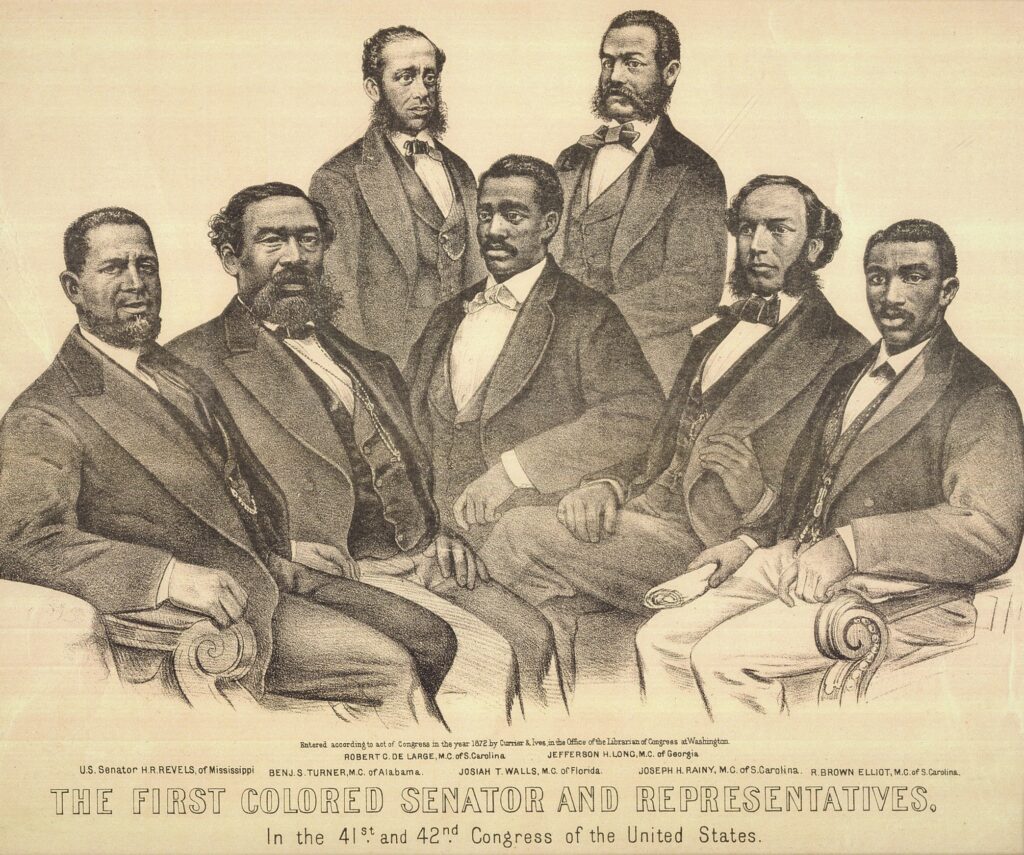
This provocative image inspired us to research about the first black politicians. Yes, every one of these men were Republicans. Here’s more about the first black Congressmen.
Robert De Large of South Carolina
Representative Robert De Large of South Carolina was a born of free mixed-ethnicity parents; his father was a successful tailor and his Haitian mother worked with his father in the clothing trade. The family was well-off and themselves owned slaves. After the Civil War, in 1868, De Large became a South Carolina state representative. Two years later, he was elected as a Republican U.S. Representative to the 42nd Congress (1871–1873).
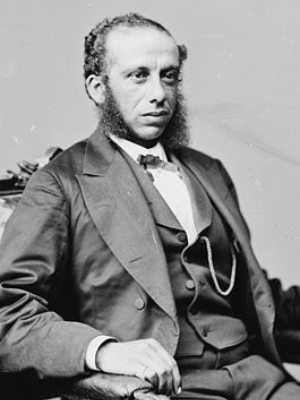
Jefferson Long of Georgia
The second African American elected to the U.S. House of Representatives, Jefferson Long was the first black member to speak on the House Floor. His mother was born a slave and his father was an ethnically-mixed free man. After the Civil War, Long opened a prosperous tailor shop.
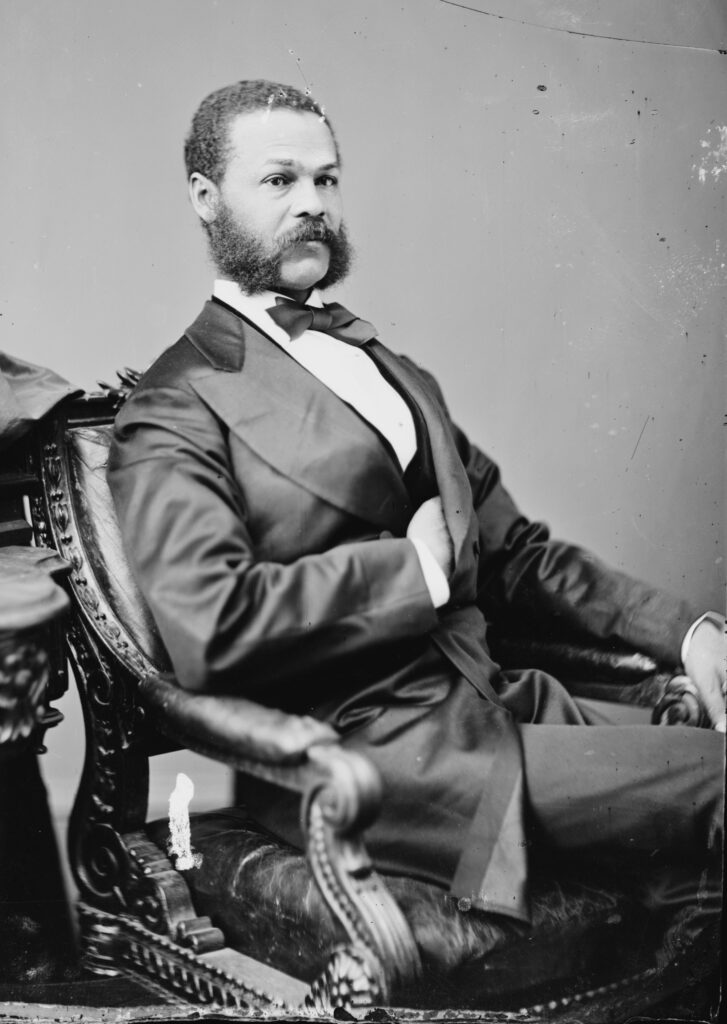
Hiram Revels of Mississippi
Born a freeman in North Carolina, Revels’ ancestry included Scottish, African and Croatan Indian. The son of a preacher, Revels was educated in a Quaker seminary, ordained by the African Methodist Church and active in the Presbyterian Church. Elected as a Senator in 1870, when the Democrats were determined to block his appointment to the Senate, Republicans came to his defense. Nevada Senator James Nye highlighted the significance of this event: “[Jefferson Davis] went out to establish a government whose cornerstone should be the oppression and perpetual enslavement of a race because their skin differed in color from his. Sir, what a magnificent spectacle of retributive justice is witnessed here today! In the place of that proud, defiant man, who marched out to trample under foot the Constitution and the laws of the country he had sworn to support, comes back one of that humble race whom he would have enslaved forever to take and occupy his seat upon this floor.” Read more
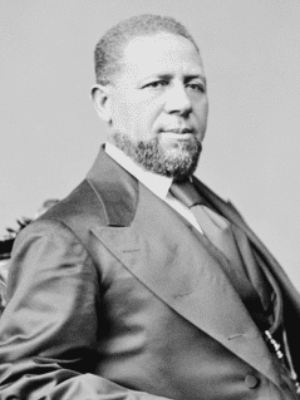
Benjamin Turner of Alabama
Benjamin Turner was born into slavery, was educated, and became a very accomplished manager who ran his owner’s various business enterprises. In 1870, he sold a horse to finance his successful campaign to become a member of the House of Representatives. Two years later, Republicans re-nominated Turner for a congressional seat. However, Turner’s fiscal conservatism and conciliatory attitude towards whites turned off the prominent African–American community who ridiculed him for having been a “barroom owner, livery stable keeper, and a man destitute of education.” The black elite feared Turner would embarrass them because he was not considered cultivated and socially skilled.
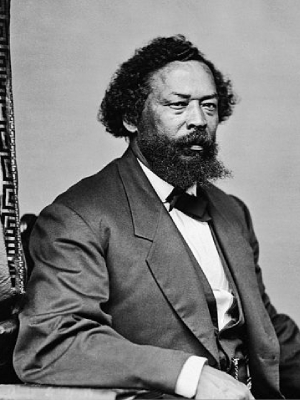
Josiah Walls of Florida
Originally from Virginia, Josiah Walls was born into the slavery, the son of his master with whom he maintained a strong bond throughout his life. Walls worked hard to improve life for all Floridians, and was concerned about the construction of telegraph lines, customhouses, courthouses, and post offices, as well as improvements to Florida’s harbors and rivers. He dreamed of establishing a land–grant state agricultural college. One of his pet projects was funding of public education. After many years of public service, Walls managed the teaching farm at Florida Normal College (now Florida A&M University), until his death.
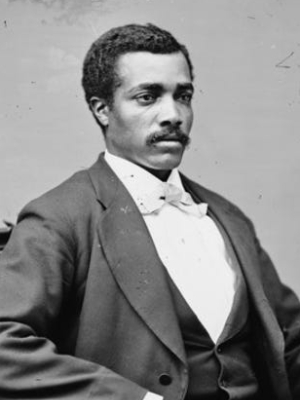
Joseph Rainey of South Carolina
Although his parents were both born into slavery, his father was allowed to work as a barber and earn his own money which he used to buy the family’s freedom. After marriage and serving for some time during the Civil War, the family relocated to Bermuda where Rainey, following in his father’s footsteps, operated a successful barber shop. His wife Susan ran a dress shop. Upon returning to South Carolina after the Civil War, Rainey became involved in politics, helping to found the Republican party in his state. He was the first black elected to the House of Representatives and served capably for many terms. One of his signature resolutions was The Ku Klux Klan Act, signed into law by President Ulysses S. Grant on April 20, 1871.
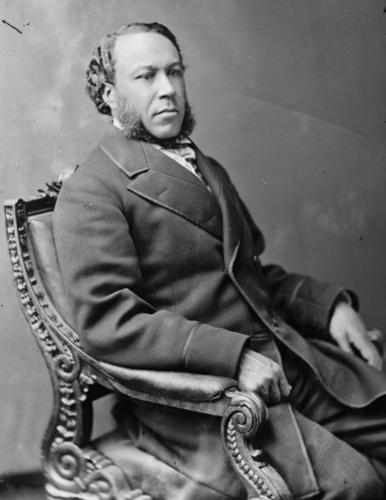
Robert Elliott of South Carolina
Born in England of parents from the West Indies, Robert Elliott was considered the only ‘genuine African’ in Congress as other blacks were of mixed-ancestry and had lighter skin. Elliott was certainly a genius. He was very gifted intellectually, including having a photographic memory. A well-educated man, Elliott spoke several languages. Most of all, he was a brilliant orator. He served two terms in Congress, and held other political appointments as well as practicing law. Much of his most important work was about protecting black Americans from the Ku Klux Klan.
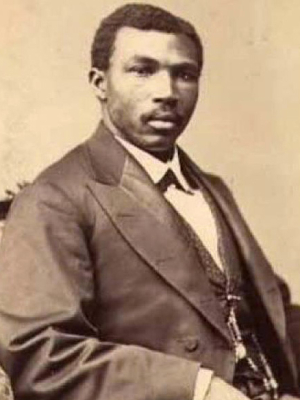
Disclaimer: We don’t believe in the theory of race, which dates back to the 16th century, and has no biological or scientific validity.